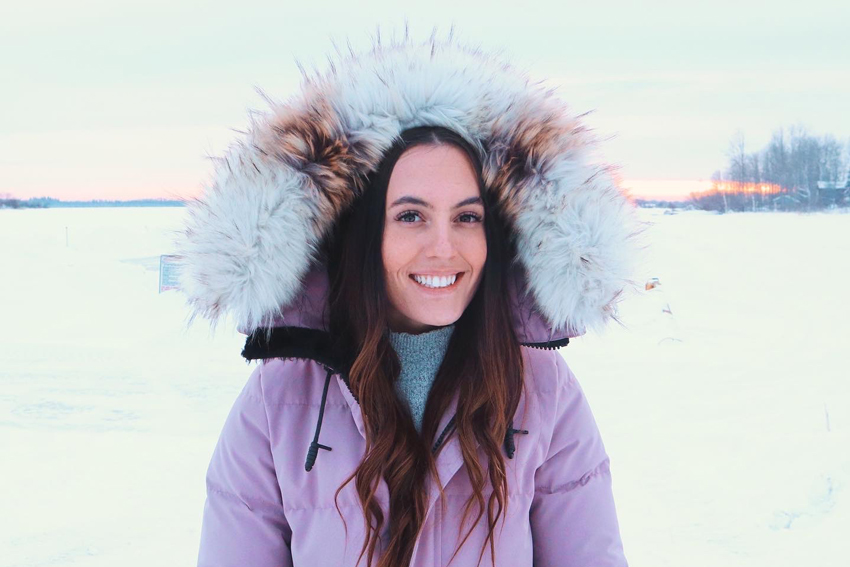
Still Here, Still Healing
USask alumna shares residential school survivor stories through original podcast
By Leslie-Ann SchlosserJade Roberts (BEd’18) was just 16 years old when her father passed away. His death ignited a spark in her to learn more about his past and to find the truth about his story as a residential school survivor.
“My dad attended a residential school. I guess when I was in high school and in elementary school we didn't really learn a whole lot about residential schools so I wasn't really aware of what residential schools were, but I always knew that my dad went to one.
“Entering university, I definitely learned a lot more about our history as Indigenous people and our history here in Canada about residential school specifically. I was angry and I was also curious. I didn't really have that family member that I could turn to and ask questions. I guess that kind of sparked the podcast, that curiosity.”
Still Here, Still Healing is her answer to this personal quest for the truth. The podcast dives into the stories and real-life experiences of residential school survivors.
“Canada is in this stage where we want reconciliation and before we have that we need the truth,” said Roberts, who hosts and produces the show.
Originally from La Ronge, Roberts is a USask ITEP graduate and a current teacher at Pleasant Hill in Saskatoon. While she admits she had no previous experience in journalism or with the technical side of running a podcast, that didn’t deter her from pursuing her passion and sharing the stories of her people.
In 2019, Roberts put out a call on her Facebook page asking members of her community to share their stories. Several people reached out saying they were interested in being interviewed, including one of her dad’s friends. Others weren’t ready to share. Robert acknowledges that the subject matter is oftentimes very difficult for her guests to relive. Even as a host, she notes how heavy the content matter can be to hear and share.
“We know that residential schools happen, and we know there's still survivors living. But a lot of times we don't hear those stories, and so I really wanted to give a platform for those people that were open to sharing.”
“It’s hard to share those things. A lot of our people are still experiencing that intergenerational trauma. [They are] healing and going through that right now.”
Being a teacher also allows Roberts to use the platform to educate her listeners and bring the dark history of residential school to the forefront. She has also interviewed intergenerational survivors and says that her focus going forward will be to continue to educate her listeners and celebrate those she interviews.
“I really wanted to like uplift and share the voices of people that are doing really good work.”
Fresh off her recent nomination at the Canadian Podcast Awards, Roberts says she plans to continue her show into new seasons and explore new ways to share and showcase the stories of her people.
“Through my podcast I am sharing the truth, which is our history. When I was in school, that true history wasn't taught to us, and so we can learn more now moving forward.”

